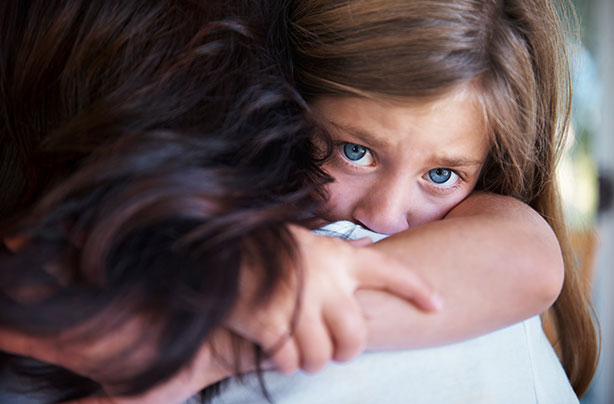Divorce process for children: Child psychologist reveals the age children are most affected
A child psychologist has revealed that there is an age when the potential for emotional trauma children after divorce is at its ‘peak’.

The divorce process is a hard thing for children to deal with, but a child psychologist has stated that there is a particular age when children are likely to be most emotionally affected by separation.
The divorce process is a hard thing for children and families to deal with no matter how old the kids are, but a child psychologist has revealed that there is an age when the potential for emotional trauma children after divorce is at its 'peak'.
Whatever the reasons for divorce are, and whether a child can understand them or not, a breakdown of a relationship followed by the separation of the parents is always going to affect a family unit.
However, child psychologist Dr. Scott Carroll told fatherly.com that the impact on a child individually will depend on their age.
Separation - The ages it's least likely to affect children:
Children under the age of two, for example, are more likely to be left with 'no meaningful impact' after the divorce because of their young age, unless there is a breakdown between the parents as the child gets older (such as the parents communicating only through the child, or speaking negatively of their ex-partner in front of the child).
Similarly, after puberty, teenagers have developed a wider understanding and ability to process information, so will be able to better grasp the reasons behind their parents divorce.
"Once a child goes through puberty there's more potential to accept and understand a parent's divorce," Dr. Scott Carroll said. "I've had teenagers advocate for their parent's divorce. Sometimes they're the smartest in the room."
Parenting advice, hot topics, best buys and family finance tips delivered straight to your inbox.

Separation - The age it's most likely to affect children:
Dr. Scott Carroll explains that the potential for emotional trauma in children because of the divorce process is at its peak when kids are around the age of 11. This is made worse if the parents have a particularly messy divorce, fraught with conflict.
"The divorce itself is not the hardest part," he added. "The hardest part is the conflict."
There is also potential at this young age for children to internalise the conflict and separation, believing that they are the reason a parent is leaving or not being as involved in their upbringing after a divorce.
"The absolute worst thing for a kid is if, after a divorce, a parent just isn't involved," stressed Carroll. "If you want to see a depressed kid, look at what happens when a parent doesn't show up."
Divorce advice from Dr. Carroll - how to deal with the divorce process around kids:
"Learn to work together. Because you're parents. You've got to work together," he said.
Trusted, informative, and empathetic – GoodToKnow is the ultimate online destination for parents. At GoodtoKnow, our mission is 'simple': we're trying to make sense of parenthood. On the site, you'll find everything you need for a happy, healthy family life. Our huge archive of content includes more than 18,000 articles and 1,500 how-to videos. These include expert-backed advice features on parenting, dealing with relationship changes after having a baby, self-care for mums and managing your family finances. We also feature tried-and-tested product reviews and buying recommendations for every stage of family life - from prams and Moses baskets to birthday gifts and top toys.